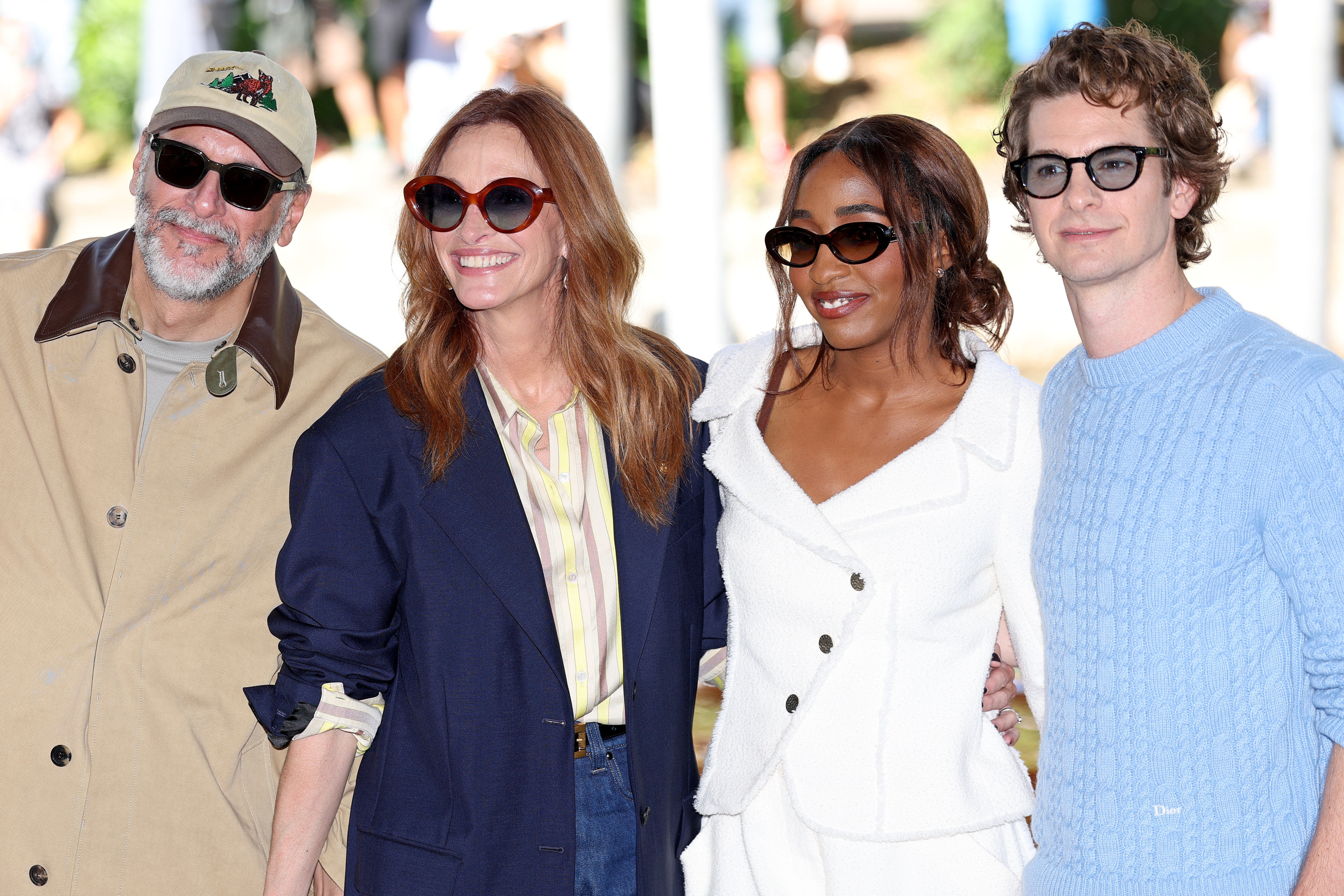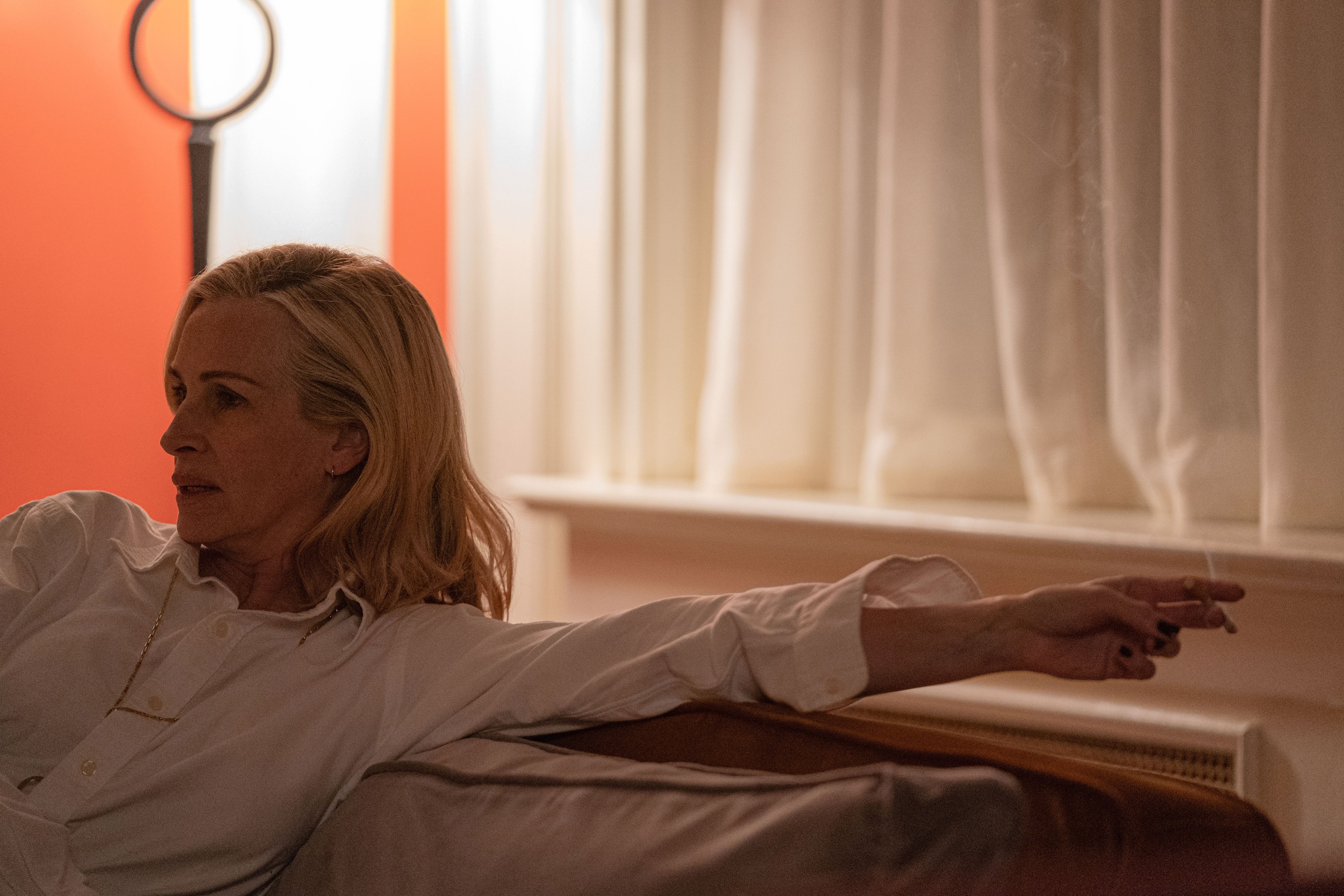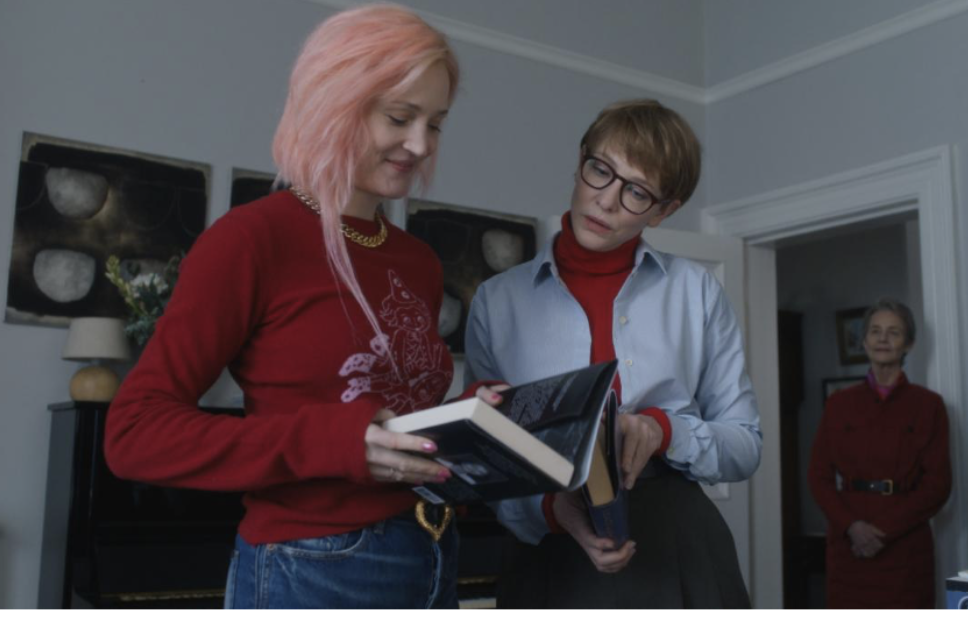At the very least, “After the Hunt” succeeds as a film that will provoke conversations, and that was the intention behind Julia Roberts attaching herself as the star of the latest Luca Guadagnino film being released by Amazon/MGM Studios. (It’s out October 10.)
“We wanted it to feel that everyone comes out with all these different feelings and emotions and points of view. You realize what you believe in strongly, what your convictions are. Stir it all up for you. So, you’re welcome,” said the “Erin Brockovich” Oscar winner during the Friday press conference for the film premiering at the 82nd Venice Film Festival, out of competition.
In “After the Hunt,” Roberts plays Yale University philosophy professor Alma, who is caught in the middle of a conflict between her favorite colleague Hank Gibson (Andrew Garfield) and her favorite student Maggie Price (Ayo Edebiri). Similar to “Challengers” last year, the film sees Guadagnino take on a script from a first-time screenwriter: this time, Nora Garrett. Unfortunately, lightning does not strike twice.
The film has both too much and not enough to say about the #MeToo and cancel culture-related topics it tries to dive into, but even making that attempt actually favors its awards prospects. While Roberts never fully gets any grand, sweeping moments, she holds the frame as a morally obscure character not totally unlike Lydia Tár, though here she is more enabler than predator.
Even if someone were to take issue with “After the Hunt,” Friday’s Venice press conference proved Roberts could still impress in her analysis and understanding of the themes. “It’s not so much that we’re making a statement. We’re just sharing these lives for this moment, and then want everyone to go away and talk to each other,” she said. “That, to me, is the most exciting bit, because we’re kind of losing the art of conversation in humanity right now.” Earlier in the press conference, Guadagnino explained the film’s opening homage to Woody Allen — a response that has since made headlines and will only fuel further debate around a movie with a sexual-assault accusation at its center.

If there is a standout actor, from an awards perspective, it is Garfield veering closer than ever back to his breakout performance as Eduardo Saverin in “The Social Network,” his first time as a Best Supporting Actor contender. Here, Emmy winner Edebiri’s character accuses Garfield’s assistant professor of assaulting her after a party, and the film tracks his rapid mental dissolution and disgraced academic status with some standout moments. Garfield does get one throwdown tantrum scene in a hallway against Roberts’ character that could make for an awards-suited excerpt on his end.
“When our motivations are invisible, even to ourselves, all of us are unreliable narrators, and especially in a culture where survival is paramount,” he told the press corps as to why he wanted to play the volatile Hank. “As normal human beings will behave animalistically when we are in a position where we feel like it’s life and death.”
Edebiri is not as lucky, which is a bit expected considering how she bears the burden of playing the “woke” character, but is also the only Black woman above the line who could speak to the racial nuances.
Meanwhile, it has been over a decade since Roberts’ last Oscar nomination, for the similarly uneven “August: Osage County,” but again the divisiveness plays to her strengths. A highlight of the film’s press conference is her cheekily starting her answer with “not to be disagreeable, because it’s not in my nature,” before pushing back at a question about if “After the Hunt” sets back the feminist movement.
There is a world in which the actress once known as America’s sweetheart can turn the tide her way, with voters nominating her for Best Actress as a vote of confidence toward her purposefully polarizing character. Though this is not the film that will finally earn Guadagnino a Best Director nomination, it does serve as another example of how he tees up his stars to succeed.



